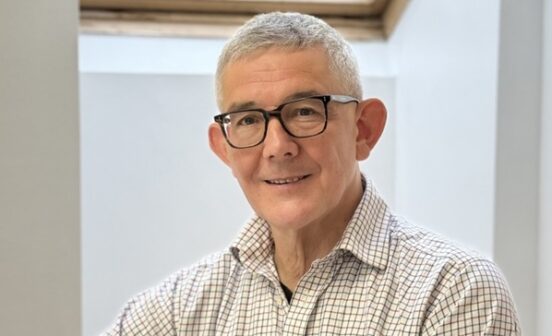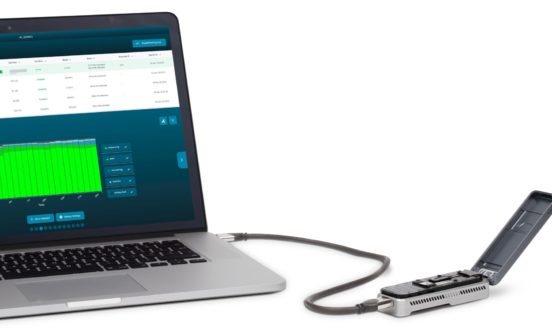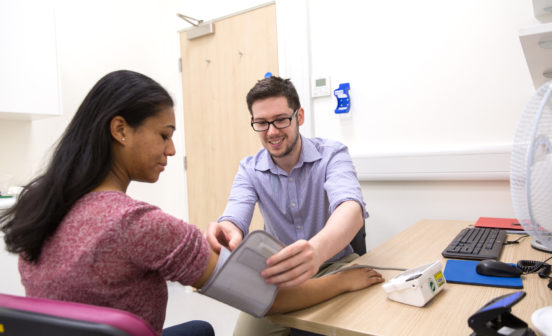Informatics ApproachesInnovation Revolutionising healthcare practice with big data research
“Big Data” is a major buzzword these days. The topic has been making waves in other industries for several years, but many of its applications are still in their early stages in the healthcare sector. Big data in healthcare refers to the vast quantities of data that are routinely recorded electronically, for example on patient admissions, health conditions, test results, and outcomes of care. The problem has traditionally been figuring out how to collect all that data and quickly analyse it to produce actionable changes in clinical practice. But with emerging big data technologies, researchers are able to combine and analyse these safe data havens in order to discover trends, better treat patients, and make more accurate predictions on patient outcomes.
We caught up with Dr Amit Kaura, Cardiology Registrar, NIHR Academic Clinical Fellow and BHF Clinical Research Fellow, to find out more about his research career to date in this important area.
How did you become interested in research?
During my intercalation degree in Physiological Sciences at medical school at the University of Bristol, I carried out a laboratory project supervised by Dr Andy Salmon, a Senior Clinical Lecturer and Consultant Nephrologist. I investigated the role of anti-angiogenic factors on the water permeability of intact mice glomeruli. Mastering the experimental assay proved to be a steep learning curve. Consequently, sample size requirements for each test group were not satisfied by the end of the research period due to time constraints. I subsequently returned to my medical training with a burning desire to complete my project, with the aim of making a novel discovery that may be linked to improvements in patient care. I was successfully granted funding through a Physiological Society Studentship Award, which enabled me to continue my research and generate sufficient data in my spare time. My results were published in a leading medical journal and presented at an international conference. This triggered the realisation that academic medicine was the career path for me, providing lifelong intellectual stimulation, autonomy and variety.
Since qualifying from medical school, I successfully attained training posts on the National Institute for Health Research (NIHR) academic pathway, initially as an Academic Foundation Programme doctor at the University of Bristol and subsequently as an Academic Clinical Fellow (ACF) in Cardiology at Imperial College London.
Over the course of my training as a junior doctor, I developed an interest in carrying out research that involved using real-world healthcare data, outside conventional randomised clinical trials, to evaluate what is happening in routine clinical practice. This involved me manually collecting data from either the paper notes or from the electronic patient healthcare records. It would take me weeks on end to collect this data from one centre in my spare time in order to use the data to publish one study. In addition to being an inefficient approach to collecting data, this manual process left a lot of room for errors such as typos and inaccurate entries. Something had to change! Over the last 3 years, I have been working on the NIHR Health Informatics Collaborative Cardiovascular Theme to develop systems and infrastructure to provide greater use of routinely captured healthcare data for research across multiple NHS sites.
Could you tell us about your research?
My main area of research is working on the NIHR Health Informatics Collaborative (NHIC) with an aim to facilitate the re-use of routinely captured electronic patient record data for translational research. The NIHR HIC involves 12 NHS Hospital Trusts and their university partners working together to improve the quality and availability of anonymised routinely collected electronic patient record data for research. Permission has been granted by each Hospital Trust to remove patient identifiers from the data, including names and date of birth, to enable its use for research. Assembling sufficiently large sets of real-world clinical data can cast light on patterns of disease that are impossible to adequately define in a single centre study or multicentre trial. My most recent study was to investigate how best to manage elderly patients who have had a heart attack.
A heart attack (myocardial infarction or MI) is a serious medical emergency in which the supply of blood to the heart is suddenly blocked, usually by a blood clot. There is good clinical trial evidence to show that in younger and middle aged patients, the best strategy to treat them is with medications and an invasive strategy of a coronary angiogram, which is an x-ray to identify blockages in the blood supply to the heart. This may be followed by a heart bypass surgery or a coronary stent, which is a stainless steel mesh positioned within a narrowed segment of artery.
However, there was no clear evidence prior to our study on how best to manage elderly patients with the most common type of heart attack (called a non-ST elevation myocardial infarction). Many doctors err on the side of caution and offer medications alone without an angiogram, with a perception that older patients may be more vulnerable to complications associated with an angiogram, including bleeding and stroke.
Our study, published in The Lancet, identified just under 2000 patients aged over 80 who were diagnosed with an NSTEMI heart attack at five hospitals across London and Oxford between 2010 and 2017. We used sophisticated statistical techniques to apply the kind of criteria used in a clinical trial, to determine which of these patients would be included in the analysis. In total, 1500 patients were included, with just over half having invasive treatment. After five years, 36 percent of those in the invasive treatment group had died, compared to 55 percent in the non-invasive group who had medications alone.
The analysis also showed that patients were at no greater risk of complications stroke or bleeding if they received invasive treatment, as there were similar rates across both groups. Patients who had invasive treatment were also a third less likely to be re-admitted to hospital for heart failure or heart attack.
The gold standard is to base treatment decisions on evidence from randomised control trials, but that doesn’t yet exist for this group of patients. There is a clinical trial underway, but that isn’t due to report its findings until 2029. So, in the interim, we’ve done the next best thing, by looking at retrospective data gathered from five large hospitals from the NIHR HIC and using it like a clinical trial. The results are clear: clinicians should positively consider invasive management for any patient with an NSTEMI, regardless of age.
We are currently assembling a large dataset of patients with COVID-19 who were admitted to 12 NHS hospitals across England between January and October 2020. We will use these data to answer important research questions on how to treat patients with COVID-19 and help save lives.
What are the major current challenges in the management of cardiovascular disease?
Despite significant progress in disease prevention and treatment, the biggest challenge facing cardiovascular medicine over the next ten years is the increasing prevalence of cardiovascular disease worldwide. Improvements in the survival rates of patients who have had a heart attack will inherently lead to an increase in the incidence of chronic heart disease, such as congestive heart failure and arrhythmias. It is crucial to improve health policies related to cardiovascular disease and increase funding for public health. Such measures may lead to a decline in the prevalence of risk factors for developing cardiovascular disease.
From a research perspective, the ultimate goal of research is to discover new effective strategies for the prevention and treatment of cardiovascular disease. It is crucial that we accelerate the translation of research findings into changes in clinical practice to help save lives.
What are you most excited about as a researcher?
As a researcher, you have the opportunity to share knowledge, facilitate learning, and formulate research questions which will generate the answers that may lead to improvements in patient care. Academia provides the opportunity to work alongside highly motivated and talented clinicians and scientists. Research allows me to progress, use my imagination and face new challenges every day. Having the opportunity to contribute to research, which may one day lead to changes in patient management and clinical practice guidelines is incredibly gratifying.
What are you proudest of in your research or career so far?
My biggest achievement was my nomination and selection as a BMA/Medical Academic Staff Committee Next generation academic role model. I was flattered to hear that my colleagues who I have worked with both clinically and academically felt inspired by my career to date.
Having a role model is crucial. I am delighted to have found a role model in Dr Andy Salmon early in my career who led by example and conduct, whilst always maintaining a broad perspective on life. He had a commitment to excellence and growth and a positive outlook on every aspect of his academic career. He inspired me to fulfil my potential and I feel privileged to be passing on his excellent qualities by inspiring the next generation of clinical academics myself.
What is the biggest challenge you faced in your career?
Developing a clinical academic career is challenging, with a need to balance research, postgraduate training, and the pressures of clinical service. The COVID-19 pandemic has resulted in extraordinary challenges for medicine and research in the UK and worldwide. In addition to returning to additional clinical duties to support the COVID-19 response, my research focus switched from generating large cardiovascular patient datasets to working with the team to generate large datasets of patients with COVID-19.
We also managed to sign data sharing agreements with several new NHS Trusts who joined the Health Informatics Collaborative to facilitate research on COVID-19 and future projects beyond the pandemic. This offers an exceptional opportunity to provide a very large, highly granular COVID-19 patient dataset that reflects diversity of healthcare conditions and demographic characteristics. The process of transforming raw electronic data from multiple NHS Trusts to standardised structures and formats has previously taken several months. Due to the urgency and unprecedented nature of the current situation, we managed to develop new processes to half this time and therefore provide fellow researchers with research-ready datasets for analysis to answer potentially lifesaving clinical questions.





